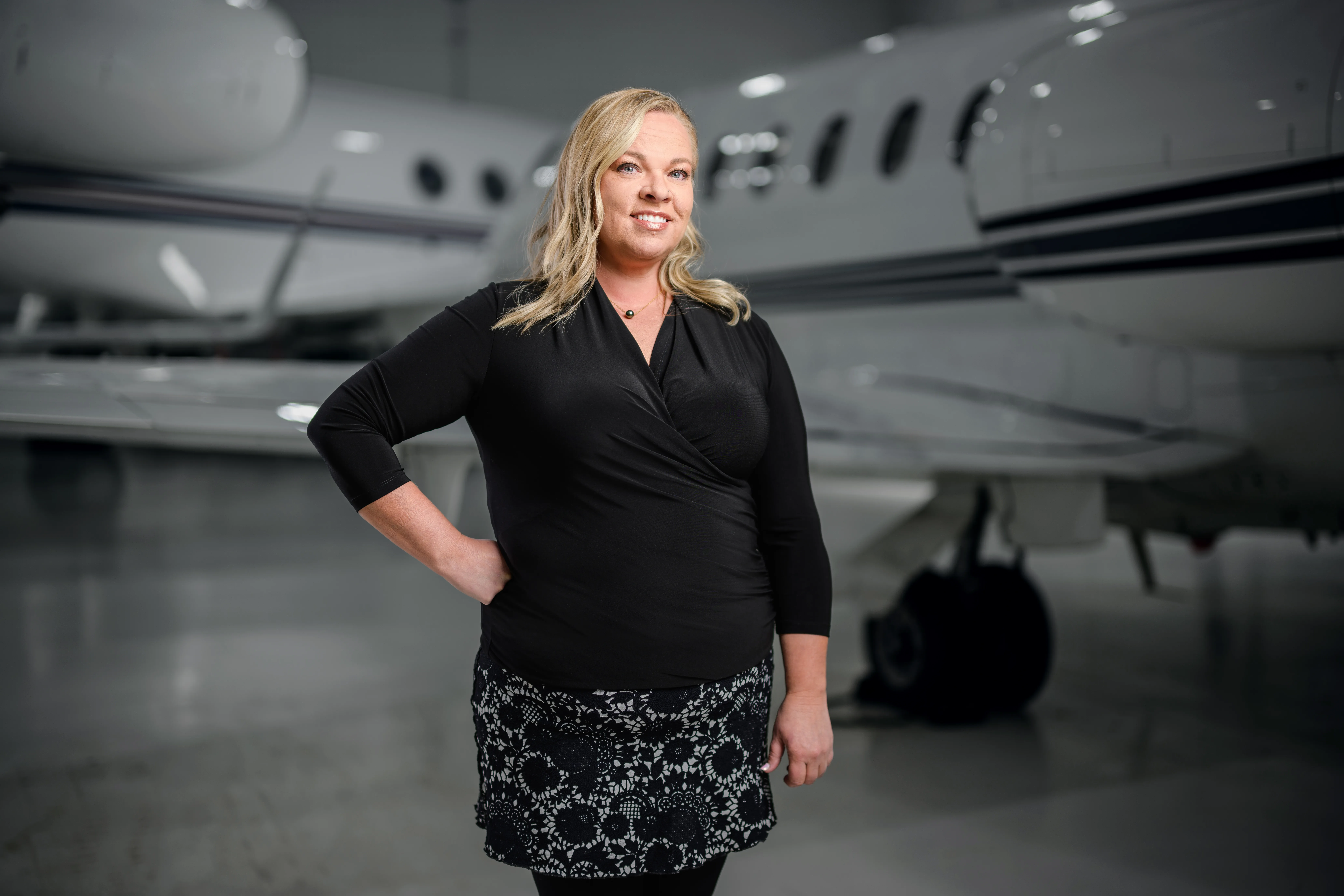
Safety First: Challenges and Complexities of Flight Operations
Jun 7, 2024
Managing the logistics of flight operations and overseeing the safety program for a company like Pentastar is no small endeavor. Especially for Carl Barnes, Pentastar’s Vice President of Flight Operations & Safety, who is responsible for leading these efforts.
We sat down recently to talk to Carl about his work, the challenges and complexities of flight operations and logistics, and what it takes to maintain the industry-leading safety standards that set Pentastar apart from so many other operators in the private aviation space.
First off, can you tell us more about your role at Pentastar?
Well, I’m a retired professional pilot and have been working in the flight operations management space since 2010. I came to Pentastar in 2022 and am responsible for overseeing all flight operations. That covers a lot of ground and airspace! It includes pilots, cabin attendants, and all the great work being done in our operations control center by flight support specialists and trip support coordinators. These are the logistics experts who work hard to make our pilots’ jobs a little easier—up to and including seemingly mundane but extremely important details like baggage handling and ground transportation coordination. Because I’m also in charge of all our flight safety programs and protocols, it might seem like there’s an inherent tension there between prioritizing the commercial needs of the business with operational safety. But as we know well here at Pentastar, production and protection are really just two sides of the same coin. Our safety management system ensures safety across the company and is fully aligned with meeting the needs and expectations of our clients.
Can you elaborate on that safety management system? What does it entail?
A safety management system is essentially a proactive approach to safety. To some it may seem like a fairly new concept in aviation, but in fact it’s been around for nearly two decades, only recently having become an FAA requirement for charter operators. In the past, the industry’s approach to safety was more reactive: investigating after an accident and taking steps to prevent something similar from happening in the future. That kind of work is still important, of course, but it’s only part of the puzzle. A modern safety management system is designed a little differently. It looks at what could go wrong, what future risks might arise, and evaluates experiences, near misses, and a whole host of information collected from across the industry to design and implement smart and strategic safety measures before something goes wrong. The idea is that there never is a “first time.”
You said this requirement is new?
New to charter operators, yes. The FAA previously made it a regulatory requirement for commercial airlines to adopt an approved safety management system by 2019. It’s a little different in private aviation. Until just recently (May 2024), participation has been voluntary for 135 charter operators. With the recent passage of the final rule, the FAA will now require operators to adopt a safety management system over a three-year implementation period. The fact that we have had a recognized safety management system in place on a fully volunteer basis for many years now speaks to the way Pentastar does things. That puts us well ahead of the safety curve compared to most operators in our industry.
Are there any other safety standards or certifications Pentastar holds?
There are several. But some of the highlights include holding the highest possible safety designation with Wyvern, a global leader in aviation safety and risk management. When we earned the Wingman Pro designation in 2022, we became just the seventh operator in the world to achieve that standard. We also have a relationship with the International Business Aviation Council (IBAC). We have the highest possible standing (Stage 3) with their ISBAO standard, which covers aircraft operations, and we’re pointed to achieve stage 3 this summer with ISBAH, which covers fixed based operations (FBO) and aircraft handling. Holding all three of those certifications is really the gold standard. In this business, it doesn’t get any better than that.
Presumably that’s extremely important to Pentastar customers.
Without question. We have a reputation, not just in Michigan, but across the industry, as one of the most capable, professional, high-service and safety-conscious operators. That’s not something you get from flashy marketing or celebrity spokespeople, but for decades of unrivaled service and safety. Our customers recognize very quickly that we know their needs, we know the business, and we know how to get them where they are going safely and in comfort and style.
Are there any big challenges or changes you see in flight ops or safety?
Well, a big one is the ongoing pilot shortage. The post-COVID recovery meant a surge in demand that the industry really hasn’t fully adapted to just yet. There’s lots of competition for good pilots, and salaries have gone up. Experienced flyers can essentially pick and choose where they go based on location, compensation, and working environment. I’m grateful Pentastar has so much to offer in that regard because it allows us to stay competitive and maintain an outstanding team of experienced pilots. That experience is particularly valuable because business aviation pilots are a specialized niche. It’s work that requires a lot of care and attention to detail, as well as being an outstanding pilot and a personable individual. There’s a lot of planning, smart decision-making, and pre-flight work, as well as customer interaction and engagement. It’s a very different job than a commercial airline pilot, and as a former pilot, I understand these professionals. And the neat thing is that I’m nothing special in that regard. We have so many experienced industry pros here at Pentastar: experts with deep, hands-on experience in operations, safety, and customer service. As you know, we aren’t just a flight operation, we maintain aircraft and take care of services like maintenance, fueling, cleaning, and other essential tasks. And that not only allows us to deliver more value for our clients, but it also gives us a deeper and more nuanced understanding of the industry and the operations side. Our team has an intimate and unparalleled ability to expertly navigate the complex contours of the private and charter aviation landscape.

